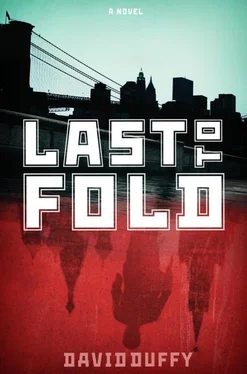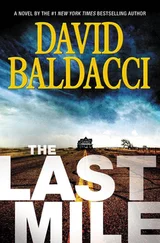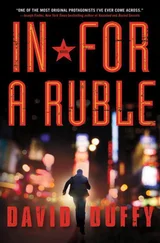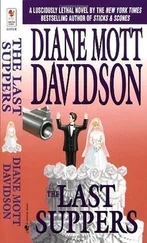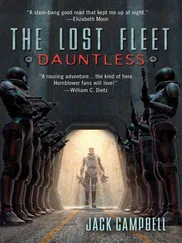David Duffy - Last to Fold
Здесь есть возможность читать онлайн «David Duffy - Last to Fold» весь текст электронной книги совершенно бесплатно (целиком полную версию без сокращений). В некоторых случаях можно слушать аудио, скачать через торрент в формате fb2 и присутствует краткое содержание. Город: New York, Год выпуска: 2011, ISBN: 2011, Издательство: Thomas Dunne Books, Жанр: Триллер, на английском языке. Описание произведения, (предисловие) а так же отзывы посетителей доступны на портале библиотеки ЛибКат.
- Название:Last to Fold
- Автор:
- Издательство:Thomas Dunne Books
- Жанр:
- Год:2011
- Город:New York
- ISBN:978-0-312-62190-2
- Рейтинг книги:4 / 5. Голосов: 1
-
Избранное:Добавить в избранное
- Отзывы:
-
Ваша оценка:
Last to Fold: краткое содержание, описание и аннотация
Предлагаем к чтению аннотацию, описание, краткое содержание или предисловие (зависит от того, что написал сам автор книги «Last to Fold»). Если вы не нашли необходимую информацию о книге — напишите в комментариях, мы постараемся отыскать её.
From Review Turbo Vlost learned early that life is like a game of cards…. It’s not always about winning. Sometimes it’s just a matter of making your enemies fold first.
Turbo is a man with a past—his childhood was spent in the Soviet Gulag, while half of his adult life was spent in service to the KGB. His painful memories led to the demolition of his marriage, the separation from his only son, and his effective exile from Russia.
Turbo now lives in New York City, where he runs a one-man business finding things for people. However, his past comes crashing into the present when he finds out that his new client is married to his ex-wife; his surrogate father, the man who saved him from the Gulag and recruited him into the KGB, has been shot; and he finds himself once again on the wrong side of the surrogate father’s natural son, the head of the Russian mob in Brooklyn.
As Turbo tries to navigate his way through a labyrinthine maze of deceit, he discovers all of these people have secrets that they are willing to go to any lengths to protect.
Turbo didn’t survive the camps and the Cold War without becoming one wily operator. He’s ready to show them all why he’s always the one who’s… LAST TO FOLD.
Nominated for the 2012 Edgar for Best First Novel by an American Author. Duffy’s promising debut introduces Turbo Vlost, a gulag survivor who later worked as an undercover man for the KGB until the Soviet Union’s breakup. Now living in New York City, Vlost works at finding things for people. A wealthy businessman, Rory Mulholland, hires Vlost off the books to locate his 19-year-old adopted daughter, Eva, who appears to have been kidnapped. In his effort to rescue Eva, Vlost gets hold of a laptop that contains vital business records of the local Russian mob. When he doesn’t immediately return the computer, Vlost discovers himself back on familiar ground, negotiating the hard and violent realities of his Russian past. The dialogue is crisp and rings true, and the main character is easy to like and root for. The plot, however, needs a clarity check from time to time, and Duffy needs to learn when to stop writing atmosphere and social commentary and simply let his story move forward. (Apr.)
(c) Copyright PWxyz, LLC. All rights reserved. “One of the most original protagonists I’ve ever come across—a cross between Arkady Renko and Philip Marlowe: a Russian-born ex-KGB agent living in New York, a private eye with a strong sense of irony and a Russian sense of fatalism. David Duffy knows his Russia inside and out, but most of all, he knows how to tell a story with flair and elegance. This is really, really good.”
—Joseph Finder, New York Times bestselling author of
and
“The dialogue is crisp and rings true, and the main character is easy to like and root for.”
—PUBLISHERS WEEKLY
